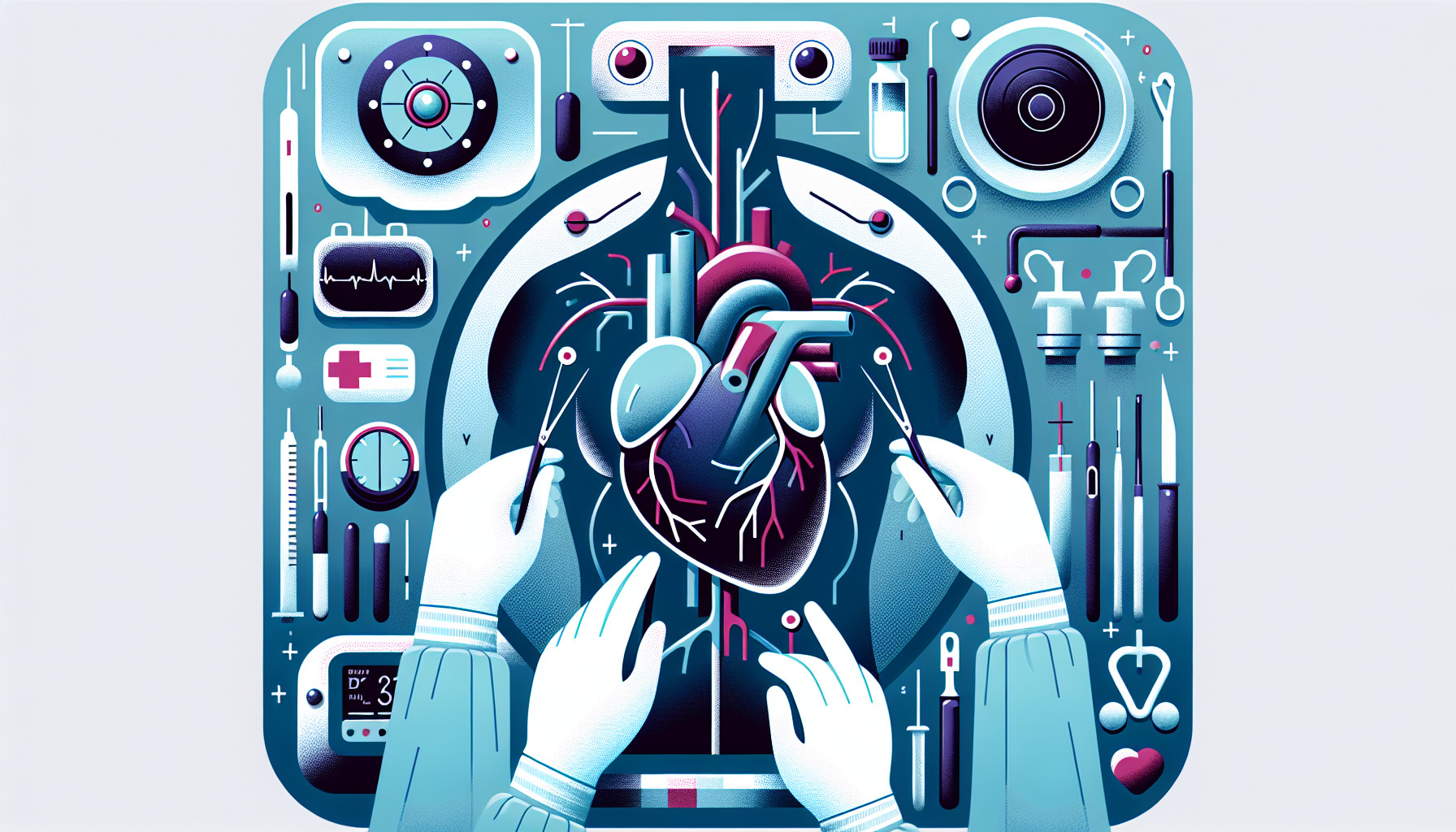Our Summary
This study looks at how often people develop a new heart rhythm disorder called atrial fibrillation after having a specific type of heart surgery - coronary artery bypass. The researchers reviewed various studies and combined their results to give an overall picture. They found that about 25% of patients developed this heart rhythm disorder after surgery. This percentage increased slightly to 26% when they only looked at patients who were having this type of surgery for the first time.
However, these results varied quite a bit between the different studies, so they should be interpreted carefully. They also found several factors that made it more likely for someone to develop this complication. These included having lung disease, low oxygen levels in the blood, heart failure, disease of the right coronary artery, being male, having a long period of time where the heart was stopped during surgery, and exposure to certain drugs after surgery.
The researchers concluded that more studies are needed to confirm and strengthen these findings.
FAQs
- What percentage of patients develop atrial fibrillation after coronary artery bypass surgery?
- What factors increase the likelihood of developing atrial fibrillation after coronary artery bypass surgery?
- Are more studies needed to confirm the findings of this research on atrial fibrillation post-coronary artery bypass surgery?
Doctor’s Tip
A helpful tip a doctor might give a patient about coronary artery bypass surgery is to closely follow their post-operative care instructions, including taking prescribed medications, attending follow-up appointments, and participating in cardiac rehabilitation programs. It is also important for patients to maintain a healthy lifestyle with regular exercise, a balanced diet, and avoiding tobacco use to reduce the risk of developing complications such as atrial fibrillation. Additionally, patients should be aware of the potential risk factors for developing complications and discuss any concerns with their healthcare provider.
Suitable For
Patients who are recommended for coronary artery bypass surgery typically have severe coronary artery disease, which occurs when the blood vessels that supply blood to the heart become narrowed or blocked by plaque buildup. These patients may experience symptoms such as chest pain (angina) or shortness of breath, and are at high risk for a heart attack or other serious complications.
Additionally, patients who have not responded well to other treatments such as medication or lifestyle changes may also be recommended for coronary artery bypass surgery. Patients with multiple blockages in the coronary arteries, left main coronary artery disease, or those at high risk for complications during other types of heart procedures may also be candidates for this surgery.
Overall, the decision to recommend coronary artery bypass surgery is based on a thorough evaluation of the patient’s medical history, symptoms, and overall health, and is typically made by a team of healthcare providers including cardiologists, cardiac surgeons, and other specialists.
Timeline
Before coronary artery bypass surgery:
- Patient may experience symptoms of coronary artery disease, such as chest pain (angina), shortness of breath, and fatigue
- Patient undergoes various tests, such as angiography, to determine the extent of blockages in the coronary arteries
- Patient may be prescribed medications to manage symptoms and reduce the risk of complications
After coronary artery bypass surgery:
- Patient is monitored closely in the intensive care unit immediately after surgery
- Patient may experience pain, swelling, and discomfort at the site of the incision
- Patient undergoes cardiac rehabilitation to help with recovery and improve overall heart health
- Patient may need to make lifestyle changes, such as following a heart-healthy diet and participating in regular exercise
- Patient is monitored for potential complications, such as atrial fibrillation, infection, and blood clots
- Patient may need to take medications, such as blood thinners, to prevent complications and manage symptoms
- Long-term follow-up care is important to monitor the patient’s overall heart health and prevent future heart problems.
What to Ask Your Doctor
- What is the likelihood of developing atrial fibrillation after coronary artery bypass surgery?
- Are there any specific risk factors that may increase my chances of developing atrial fibrillation after surgery?
- How is atrial fibrillation typically treated after coronary artery bypass surgery?
- What are the potential long-term effects of developing atrial fibrillation after surgery?
- Are there any preventive measures I can take to reduce my risk of developing atrial fibrillation after surgery?
- How will atrial fibrillation affect my overall recovery and rehabilitation process after surgery?
- Are there any specific medications or treatments that can help manage atrial fibrillation if it does occur after surgery?
- How will the presence of atrial fibrillation after surgery impact my overall heart health in the long term?
- Are there any lifestyle changes or interventions that can help reduce the risk of developing atrial fibrillation after surgery?
- What are the potential complications or risks associated with developing atrial fibrillation after coronary artery bypass surgery?
Reference
Authors: Higgs M, Sim J, Traynor V. Journal: Intensive Crit Care Nurs. 2020 Oct;60:102897. doi: 10.1016/j.iccn.2020.102897. Epub 2020 Jun 26. PMID: 32601010
